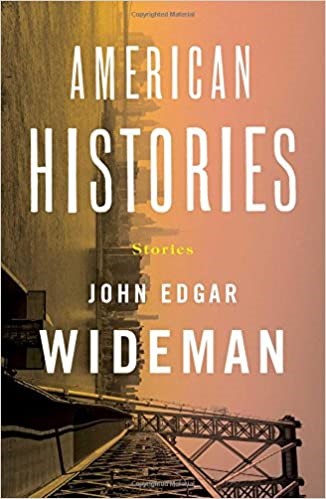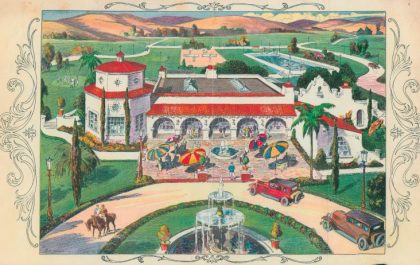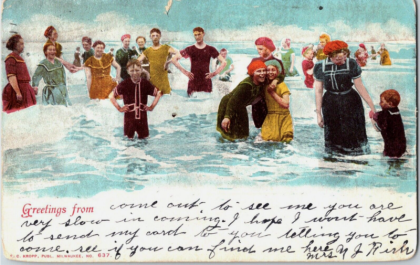
I judged a book by its cover and was not disappointed.
In American Histories: Stories (2018) American novelist and essayist John Edgar Wideman weaves a collection of cerebral ruminations held loosely together with the delicate thread of family, race, tragedy, and history.
Much of Wideman’s fiction is enriched with history and moments from his own life, including personal tragedies of a sort that seem to disproportionately befall black people in this country; especially those like the author who grow up in the ghetto.
A “prefatory note” sets the mood for many of Wideman’s stories; written in the form of a letter to the president requesting that the power of that office be used to “eradicate slavery.” It takes a moment to realize that he is referring to the enduring legacies of slavery rather than the legal version within which the nation was born.
Wideman does not hold out much hope that his plea will do much good. My guess,” he laments, “is that slavery won’t disappear until only two human beings left alive, neither one strong enough to enslave the other.”
This rather disheartening take on humanity sets the tone for “JB & FD,” a fictional exchange between John Brown and Frederick Douglass in the years before the American Civil War. The martyred revolutionary who failed in his efforts to bring about an insurrection of the enslaved squares off with the eloquent orator who used his gifts to appeal to the conscience of America. The fictional dialogue eventually leaves one wondering whether the country even has one.
Another musing takes place from the seat of a toilet in a high-rise apartment building as noises pass through shared plumbing, and through thin walls; an environment where urban dwellers often live only a few feet away from strangers, even during the most intimate and personal moments of their lives.
My Dead is a recitation of those the author has lost, which cannot be read without conjuring and reflecting upon one’s own. Then, in “New Start,” we are thrust back into the present day, binge-watching a TV series from bed and pondering why we so enjoy viewing the travails and joys of others. “Maps and Ledgers” reaches off the page with an opening line that slaps the reader in the face: “The first year teaching at the university my father killed a man.”
By this point in the book, I could not distinguish between fiction and biography, and then, just as quickly, realized it did not matter.
“Writing Teacher,” written in first-person, seems real enough. A white middle-class female student seeks help from her black writing professor—Wideman’s day job—with her story about “a young woman of color, a few years out of high school, single, child to support, no money, sh***y job, living with her mother…”
The professor offers the student assistance with her writing while navigating the choppy waters of modern academia, second-guessing how forthcoming he can be without offending; all the while inviting the reader to question whether this privileged white girl has any standing to write about the topic she has chosen.
Also in first-person—while not knowing who the “I” is—the narrator in another gem is literally stripped down to his boxer shorts contemplating a jump into the East River from the “Williamsburg Bridge.” Whether this is Wideman’s own experience or not is unclear. However, by the time the soliloquy is over, it occurred to me that anyone who writes about suicide has, by definition, pondered it.
To support the assumption, Wideman’s “Examination” takes the reader off the bridge and into the river. “They say drowning’s the easiest death” Wideman writes. “Only a few moments thrashing, flopping around, too busy to pay attention to that dreadful, instantaneous last review of your life they say you always receive, then water’s over your head and your edges flow into water, water flows into your edges. The rest is drift. Peace.”
Wideman’s book is rich in raw observations such as this; delivered often, not with the lucid prose one might associate with a best-selling author, but rather, with the disjointed thoughts that rumble around in the heads of thinking people. The author’s poetical prose illuminates without the bothersome intrusion of question marks and unneeded periods.
Wideman is at his best when he dives into our history with poetic license in hand. In “Nat Turner Confesses,” he returns to the era of American slavery explored in the book’s first story. The enslaved Turner famously organized a rebellion in 1831 in which scores of whites were hacked to death.
This story, and others like it, put history to work for us. In this case, uncovering the many instances of slave resistance destroys the myths created by the enslavers; which they crafted to justify their peculiar institution. Historians are fully aware—as is John Wideman—that the descendants of slavery’s myths are repeated today by those flying old flags while reminiscing days-gone-by when America was “great.” This is a prime example of the acute relevance of Wideman’s work.
“Nat Turner Confesses” is my favorite in Wideman’s collection. It demonstrates the raw power of fiction to patch up holes in the historical record. “I decided to kill white people,” Wideman’s Turner explains, “when the voice I hear sometimes in my head reasoning with me said you don’t need them.” Nat Turner never said it but he most certainly thought it.
Given the dark tenor of this motley assortment of American Histories, one cannot help but conclude that Nat Turner’s fictionally attributed view of white people offers insight into the author’s own. While I feel fortunate to live in a country where thoughts like this can be expressed, I am equally concerned that—after reading this one—the privilege may be fleeting.











